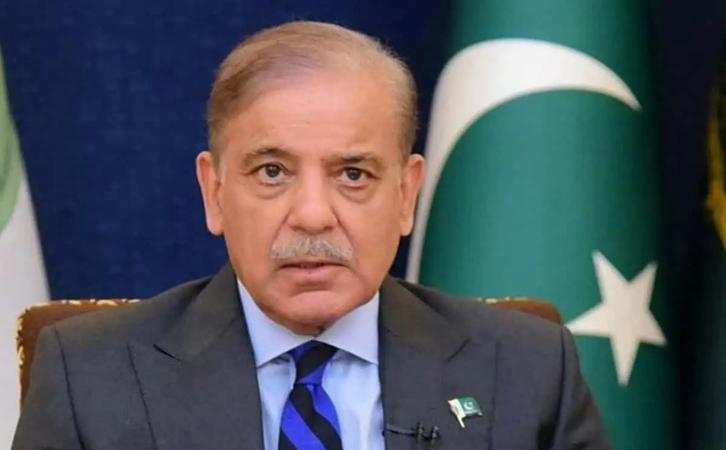 Prime Minister Shehbaz Sharif on Friday directed the relevant authorities to further reduce power tariffs and expedite the implementation process of the action plan of the future power generation projects.
Prime Minister Shehbaz Sharif on Friday directed the relevant authorities to further reduce power tariffs and expedite the implementation process of the action plan of the future power generation projects.
Chairing a meeting to evaluate and discuss the future electricity and power plans of country, the prime minister stressed to prioritize the low-cost power projects based on local resources.
During the meeting, the prime minister was informed about the progress of the ongoing hydro power projects across the country. PM Shehbaz said that the low-cost power project produce environment friendly and affordable electricity. He further directed that the current electricity generation capacity should also be shifted to solar energy. Globally, electricity is being produced from environmentally friendly, low-cost solar energy, he noted, adding that Pakistan was fortunate in this regard as the country had vast potential for solar energy. The prime minister was also briefed on the progress of phasing out inefficient power plants that consume more fuel but produce less electricity.
He ordered the immediate closure of such outdated power plants adding that closing these plants would not only save valuable foreign exchange, but also reduce electricity costs for consumers. The Prime Minister instructed that immediate action be taken against all officials deliberately obstructing reforms in the power sector. He also directed that reforms in the electricity transmission system be expedited. The power transmission system should be upgraded according to international standards, the prime minister further directed. He further directed swift implementation of a system based on modern technology for the selection and transmission of low-cost electricity. The prime minister issued instructions to complete all measures for the reform of the power sector within the specified timeline. The meeting was attended by Federal Ministers Ahad Khan Cheema, Sardar Awais Khan Leghari, Dr Musadik Malik, Minister of State Ali Pervaiz Malik and other relevant high officials.
Meanwhile, the federal government has decided to terminate electricity purchase agreements with six more Independent Power Producers (IPPs), a move expected to save Rs300 billion. Government sources confirmed the development, revealing that these six IPPs account for a combined capacity of 2,396 megawatts. By ending these contracts, the government anticipates significant savings.
The affected IPPs include Gul Ahmed Energy, with a 136 MW agreement, and the KEPCO Power Project, with a 1,638 MW contract. Additionally, Liberty Power’s 200 MW, Attock Power’s 165 MW, Koh-e- Noor Energy’s 131 MW, and Tapal Energy’s 126 MW agreements will also be terminated. The decision is part of the government’s ongoing efforts to reduce electricity tariffs, with the cancellation of these costly agreements contributing to the reduction of capacity payments, which currently total approximately Rs2,000 billion annually.This follows the government’s previous termination of contracts with 13 other IPPs, including agreements with eight private power plants running on bagasse. The PM had earlier set up a task force to negotiate with IPPs, as part of a broader strategy to reduce energy costs in Pakistan. Separately, Energy Minister of Tajikistan Daler Jumma Friday called on Prime Minister Shehbaz Sharif at the PM House and discussed matters of mutual interests. During the meeting, regional connectivity projects, including CASA-1000, were discussed. Both sides agreed to further promote cooperation in sectors such as communications, particularly land-based connectivity, energy, education, and agriculture. Daler Jumma is visiting Pakistan to participate in the Pakistan-Tajikistan Joint Commission. The prime minister welcomed Daler Jumma to Pakistan and expressed satisfaction with the progress made in bilateral cooperation between the two countries in various sectors during the Joint Commission.
Recalling his visit to Tajikistan and his recent meetings with Tajik President Emomali Rahmon in Riyadh and Baku, the prime minister extended his best wishes to the Tajik President and expressed hope that President Rahmon would visit Pakistan soon. He expressed satisfaction with the memorandums of understanding (MOUs) and agreements reached during his visit and emphasized that timely implementation of these agreements would further strengthen bilateral relations.The Tajik Minister thanked the Prime Minister for the warm welcome and hospitality and emphasized the importance of enhancing relations and cooperation between the two countries.